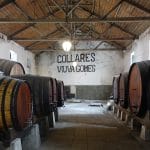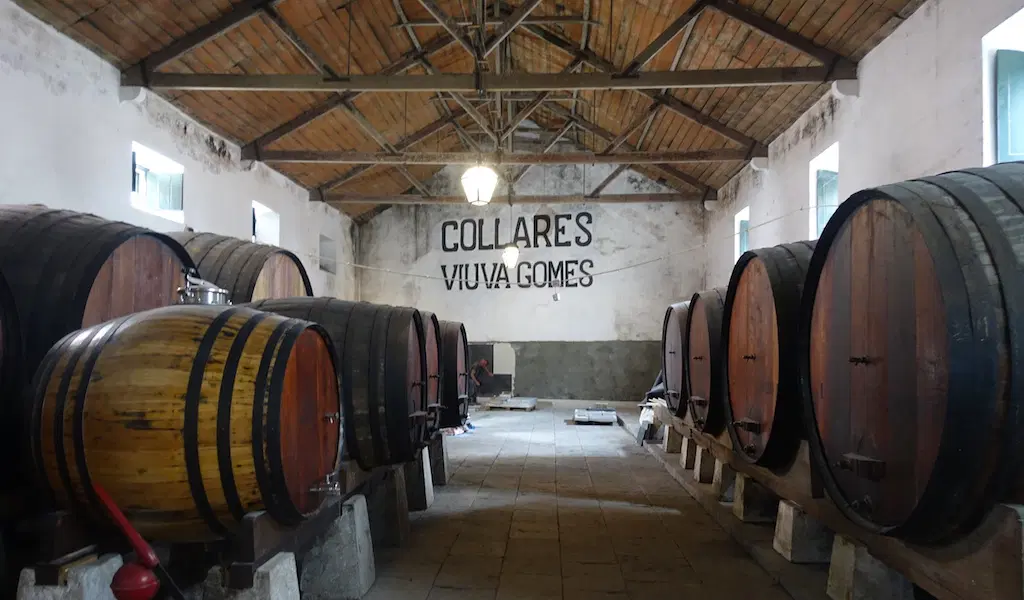Turkish wine is something of a paradox. Despite being one of the oldest winemaking countries on earth, Turkey is by no means a big wine-drinking country. Go to any bar or meyhane in Istanbul and you’re more likely to see people guzzling large pints of frothy beer or swirling delicate glasses containing cloudy rakı.
Yet there are over a hundred wineries operating across the country, roughly half of which are small producers making less than 250,000 bottles a year. Many of these wineries, big and small, are producing award-winning vino. The struggle lies in finding these high-quality wines out in the wilds of Istanbul – many restaurants and bars still stock bottles from the big-name, commercial producers that give Turkish wine a bad rap.
You’ll likely encounter a good red or white at the city’s high-end restaurants, if you’re willing to shell out for a marked-up bottle (although even that’s no guarantee). But thankfully, the culture is changing: Istanbul is now home to a variety of casual wine bars and restaurants owned by individuals who are passionate about Turkish wine and search out the best in the country, which they provide at relatively affordable prices. And even if you don’t know anything about Turkish wine or varietals, these spots employ friendly and knowledgeable staff who will guide you in the right direction, perhaps even to your new favorite vino.
Solera
Tucked into a narrow storefront on Yeni Çarşı, Solera’s small sign and deeply recessed space are easy to miss if you’re not looking for them. This wine bar offers an intimate and cozy setting with squat tables, cushy low stools, and a retro playlist. The food menu is limited but eclectic, offering Turkish mezes, pizza, pasta and steak. But you didn’t come here for a meal; you came to drink your way through their extensive wine list, through which the friendly, wine-loving staff are happy to guide you.
Owner Süleyman Er approaches wine differently than many restaurant owners in town. For him, wine isn’t a business, it’s his life. Süleyman doesn’t just own Solera, he also has his own vineyards in Tekirdağ. Twenty years ago while working in the restaurant business he fell in love with wine. After studying to become a sommelier he traveled extensively, learning about wine around the world. In 2011, he founded Solera, and in 2013, planted his vineyards. This fall he harvested the grapes that will make his first vintage and hopes to build a winery that offers people the chance to visit, learn about wine and gather the tea and herbs also grown on site.
Like its owner, Solera also wears multiple hats. More than just a wine bar, it is also a shop where you can buy any of the wines in stock for a 20 percent discount. Here you’ll find wines not often seen elsewhere in the city, and that is Süleyman’s goal. He chooses wines with an eye to small, boutique wineries, and his selection represents both unique grapes and the varied terroirs from across Turkey.

With some 50 wines available by the glass from more than 15 producers, there’s something for every taste at Solera. Our favorite white is Paşaeli Yapıncak; Yapıncak is a fairly rare grape native to Şarköy in Turkey’s southern Thrace region, and Paşaeli was the first winery to produce a 100 percent Yapıncak wine. Paşaeli’s Yapıncak vineyard is located two kilometers inland of the Sea of Marmara and at 200 meters elevation, meaning that the grapes benefit greatly from the sea breeze. The resulting wine is a brilliant, pale gold color with delicate aromas of fruit and the sea. Like the burst of scent you get when squeezing a lemon peel, citrusy acid gives an initial burst of freshness on the palate followed by a round and slightly fat mouthfeel.
As for reds, we always order a glass of Gordias Kalecik Karası. Now a widespread grape across the country, Kalecik Karası, native to the Kalecik region of Ankara, was once on the brink of extinction. One of the wineries dedicated to making quality wine with it is Polatalı-based producer Gordias.
Owner and winemaker of Gordias, Canan Gerimli is not a huge fan of oak so you won’t taste that in her Kalecik Karası. This is the naked grape, as it were. In the glass the wine is a clear, pretty red of sweet cherries just before they’re fully ripe. Bright cherry aromas dominate the nose and carry hints of strawberry, cotton candy and stable. Mouthwatering acid and soft tannins carry flavors of sour cherry with deep animal-like undertones.
If you’re interested in ordering a bottle, your choices increase greatly and you can enjoy wines made with organic grapes from Tekirdağ-based Chateau Nuzun; wine consultant turned producer Akın Gürbüz; northern Thracian producers Arda and Chamlija; and Turkey’s first ever traditional method sparkling wine, Yaşasın by Vinkara.
Tarihi Pano Şarap Evi
Not far from Solera is Tarihi Pano Şarap Evi (Pano), an old-school spot that takes you back in time, to when wine and multiculturalism were still in fashion. Established in the 1920s by Panayot Papadapulous, Pano has the feeling of an old-fashioned Greek taverna. The extensive food menu includes both Turkish and international favorites but according to Yüksel, the wine expert you’ll usually find behind the bar, the cheese plate and wine are the biggest sellers.
Papadapulous, from a Greek Orthodox family in Samatya, moved to Istanbul in the 19th century where he began secretly importing and selling wine from Bozcaada (then known by its Greek name, Tenedos). In 1898, he went legit and opened Pano Şarap Evi. His descendants ran the bar until the death of Emel Hanım, the last surviving family member, in 1987. With that the bar remained closed for 10 years until 1997, when Fevzi Büyükerol purchased it and restored it to its former glory.
At Pano, wines are chosen with an eye to grape variety. Turkish and international grapes varieties march alongside each other on the lengthy wine list. There are plenty of Chardonnays and Cabernets for the shy wine drinker; Emir, Narince, Öküzgözü and Boğazkere for those wanting to sample the most common Turkish grapes; and more unusual and challenging grapes like Kerküş and Acı Kara for the more adventurous. The menu also offers several of the bar’s own wines, continuing in the winemaking tradition begun by Papadapulous (although we’d advise against ordering them).
According to Yüksel, wines are also chosen partially by price point. They want to make sure that customers can enjoy a range of wines by the glass (or bottle!) at prices that are not prohibitively expensive. Indeed, the highest priced (domestic) wine on the list is 250 TL, which is a small markup from retail prices.
 The pace at Pano is slow in the afternoon but in the evening speeds up quickly with everyone from quiet couples to boisterous groups. While service is always excellent, the enthusiastic and wine curious staff are happy to stay and chat with you about their wines if you come early when it’s slower.
The pace at Pano is slow in the afternoon but in the evening speeds up quickly with everyone from quiet couples to boisterous groups. While service is always excellent, the enthusiastic and wine curious staff are happy to stay and chat with you about their wines if you come early when it’s slower.
Pano offers around 50 wines by the glass, including several sweet and fortified options. One of the best things about Pano is that you can find some producers here, like Süryani Şarabı, that are not offered elsewhere.
On a recent visit, we ordered the Süryani Şarabı Kustan. The Kustan is the only white wine produced by Süryani Şarabı, one of the last remaining Assyrian wine companies in Turkey. Made from the Mazrona and Kerküş grapes native to the Mardin area of southeast Anatolia, this special wine is very aromatic in the nose, featuring sweet citrus, orange peel, and flowers. In the mouth it’s round and slightly oily but with a fresh, clean zing of acid and bright, warm citrus candy flavors and a mineral finish.
As for a red, we recommend the Öküzgözü made by the Cappadocia-based Turasan, one of Turkey’s most well-known and visited wineries. The intense ruby color of the wine is a reflection of the aromas to come. Lots of red fruits including berries, pomegranate and sour cherry are underpinned by spicy licorice and clove. Mouthwatering acid and medium tannins carry the fruit flavors that burst juicily in the mouth.
Pano also offers difficult to find producers in the bottle selection if you’re ready for more than a glass. Look especially at the wines from Kalecik-based Tomurcukbağ and Urla-based Mozaik.
Meat & Meet
An honorable mention goes to Meat & Meet, a restaurant also known as Kasap Dursun in Bomonti. While this meat lover’s paradise does not offer the best by the glass wine selection, the eclectic and affordably priced bottle list is well worth the visit. The offerings are heavy on the red wines, as we would expect in a meat-based restaurant, and most were chosen with meat pairings in mind.
We naturally ordered a steak and a portion of sucuk (Turkish sausage), and our chosen wine, a bottle of Yedi Bilgeler Solon Attica Shiraz, paired beautifully with both. The wine has a big, complex nose that revealed even more depth as it aired. Initial aromas of blackberry and black pepper open up to leather, tobacco and spicy clove. All of these come through as flavors on the palate. For those who shy away from the stereotypical big-bodied and tannic Syrah wines, the Solon Attica is for you – the tannins are soft and provide enough texture to cut through the meat but are not overly aggressive.
 October 5, 2019 Wine Harvest Week
October 5, 2019 Wine Harvest Week
Zeynep Arca Şallıel had a successful career in advertising in Istanbul, but in 1995 she […] Posted in Istanbul April 17, 2019 Retsina
April 17, 2019 Retsina
Retsina has a bad rap. Many locals and foreigners associate this Greek classic with […] Posted in Athens September 14, 2018 CB on the Road
September 14, 2018 CB on the Road
They withstood the phylloxera and the strong Atlantic winds, and are slowly fighting […] Posted in Lisbon
Andrea LemieuxAndrea Lemieux and Emma Aslıhan Başer Rose
Published on November 16, 2018
Related stories
October 5, 2019
IstanbulZeynep Arca Şallıel had a successful career in advertising in Istanbul, but in 1995 she decided to take on a daunting new challenge: taking part in the revival of small-scale viniculture in the ancient winemaking region of Thrace.“I wanted to do something with soil, something that mattered a little bit more,” she says. Her father…
April 17, 2019
AthensRetsina has a bad rap. Many locals and foreigners associate this Greek classic with cheap “house wine” served at tavernas – you know, the stuff that is bright yellow in color, has an intensely resinous flavor and practically guarantees a headache the next morning. But we think retsina is just misunderstood. Increased demand in the…
September 14, 2018
LisbonThey withstood the phylloxera and the strong Atlantic winds, and are slowly fighting back against urban expansion, so it’s no surprise that a glass of wine made from grapes grown in Colares tastes like no other. The smallest wine region in Portugal, Colares is also probably one of its most distinct. Located on the coastline…


















































































